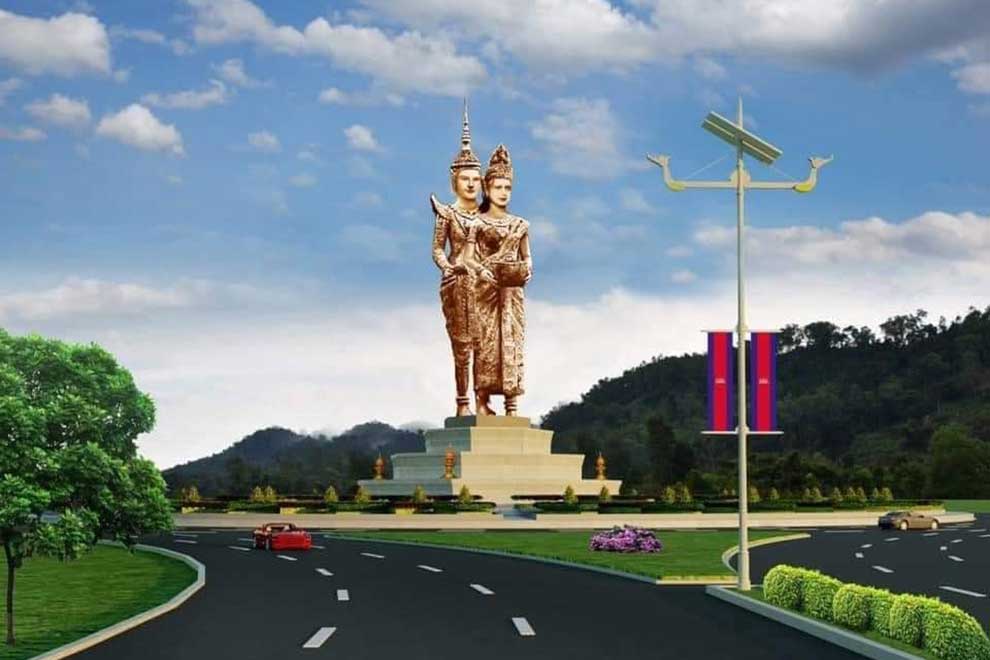
Design illustration of the statue erected in Preah Sihanouk province. PREAH SIHANOUK ADMINISTRATION
The largest copper statue in Cambodia, weighing 60 tonnes and towering 21m high and depicting Preah Thong and Neang Neak – the legendary co-founders of the Funan Kingdom – are being erected at their namesake roundabout at Prey Nop district’s Ream commune in the coastal province of Preah Sihanouk.
Provincial administration spokesman Kheang Phearom said the statue of the symbolic monarchs was designed by Cambodian architects and smelted in China. It arrived in the province on March 26.
Of the origins of the statue, which faces the Ream Beach, Phearom said: “The King went to meet his parents at Than Phu Chong Neak, which symbolises the birth of the land, culture, civilisation, traditions and customs of Cambodia.”
The statue of the couple is the third in Preah Sihanouk province after that of Preah Uma-Mahesor in Ream commune and the three-faced Siharaj statue in front of Angkor Brewery in Sihanoukville’s commune I.
The statue spans 99m in diameter and sits on a throne that is 6m high.

Statues of Preah Thong and Neang Neak are set to be installed at their namesake roundabout in Prey Nop district, Preah Sihanouk province, on Friday. SUPPLIED
In a Facebook post, the provincial administration said that after the statue arrived at the site, provincial governor Kuoch Chamroeun had inspected the insallation and instructed workers to speed up erecting it.
“After we install the statue of Preah Thong and Neang Neak, Preah Sihanouk province will be a more attractive place for people, especially domestic and international tourists,” it said.
Provincial Department of Culture and Fine Arts director But Bopha applauded the decision to erect the statue, saying that it celebrates the national identity of Cambodia that predates the birth of Khmer cultural traditions and customs.
Khmer customs as we know them today came into being when Preah Thong had lifted the veil of Neang Neak and proposed marriage, leading to the currently practiced tradition where the groom must propose marriage.
Bopha said the statue serves as a reminder and “awakening” for the next generation to not forget their roots and culture.
“It goes without saying that our rich cultural traditions have been preserved to date. The display of this statue enables future generations to better understand and preserve our national identity, which is the long and glorious culture of our past,” he said.












